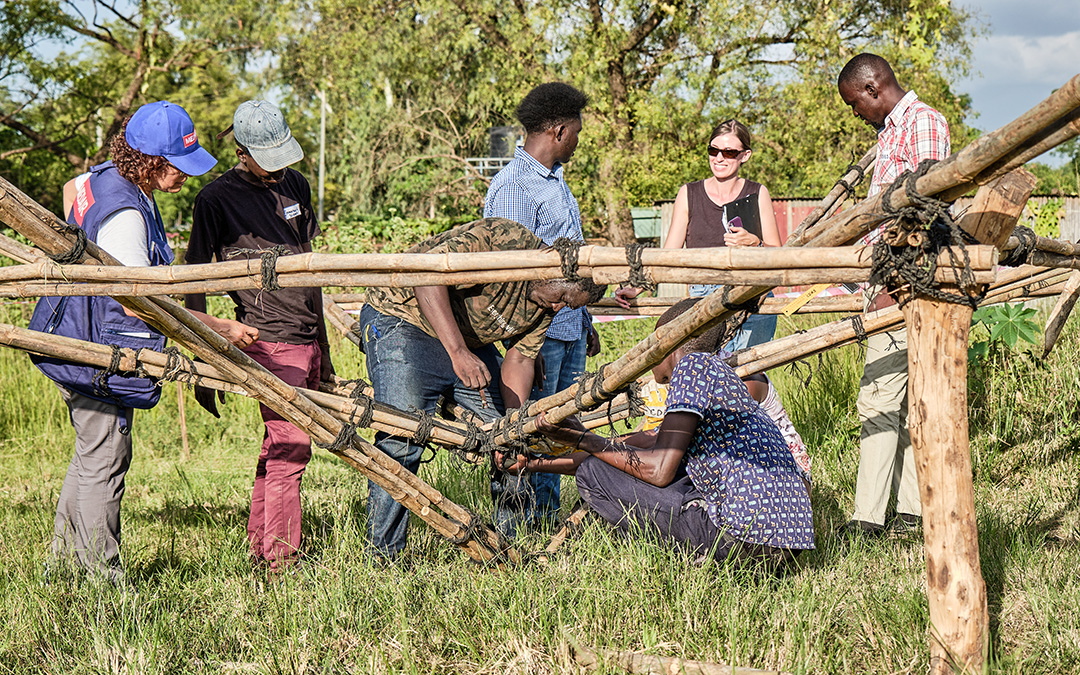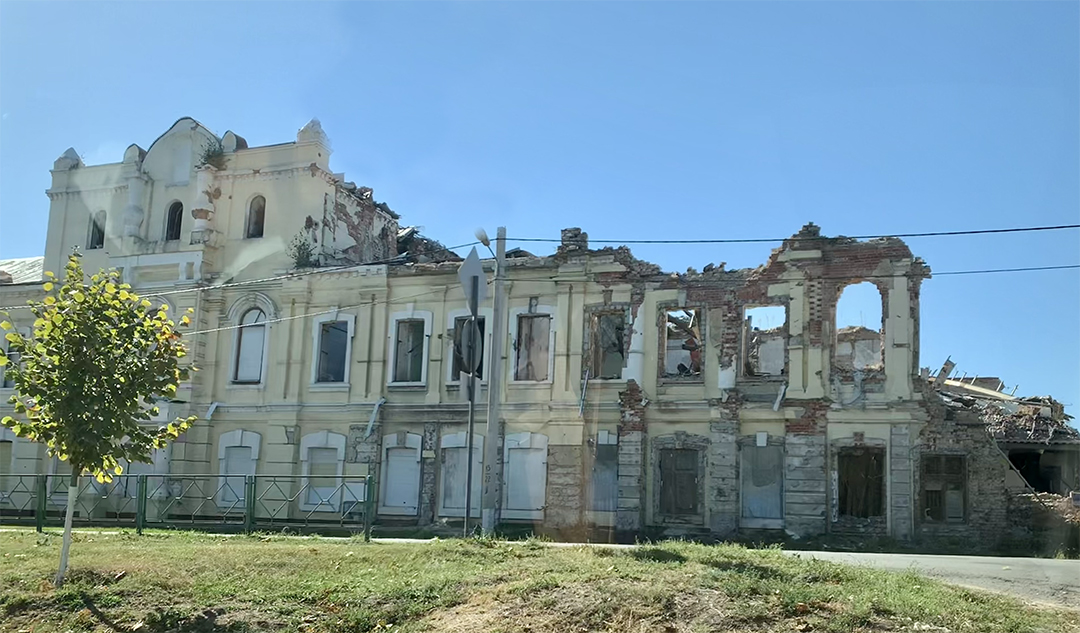
In the heart of war-torn Ukraine, amidst the battered buildings and echoes of sirens, Sarah Elizabeth Dunn ’03, a disaster response architect, does more than just build shelters. She builds hope.
Serving as a guiding force in the restoration of shattered communities, Dunn’s work in disaster response architecture takes her all over the world to construct resilient and sustainable structures. From designing housing in Guatemala for the House of Hope orphanage in 2002 to advising shelter projects around Ukraine in 2022, Dunn has done it all.
However, with more than two decades of experience in disaster response and design-build architecture, Dunn’s journey to this pivotal role was largely unexpected.
In fact, before her first year at Auburn, architecture was not a foreseeable path for her.
“It’s not like I went to architecture school thinking I would do this later on, it just kind of became my path,” said Dunn. “It’s something I never expected to be able to do.”
In truth, her time at Auburn’s Rural Studio in 2000 ignited Dunn’s passion for humanitarian architecture. Rural Studio, an off-campus design-build program, is rooted in Alabama’s Black Belt area that focuses on crafting low-cost quality housing and public structures.
“It was a great experience for me, and it’s given me a lot to fall back on and say, ‘I actually did this when I was a student,’” Dunn said with a laugh. “You got to really see the people that were going to experience what you were designing.”
From crafting unique public restrooms for Perry Lakes Park in Perry County, Ala., to a full-scale housing project for a family of eight, Dunn’s time at Rural Studio pushed her to seek out other architectural opportunities.
“I was looking for something over the summer to do [after sophomore year] and found an internship opportunity with Engineering Ministries International (EMI),” said Dunn. “I really wanted to look at what it meant to combine faith with design.”
Working at EMI, a Christian nonprofit dedicated to constructing shelters and infrastructures in developing communities, was a turning point in Dunn’s career. Twenty years after her summer internship—and many jobs later—Dunn reunited with the Christian organization to serve as the disaster response program manager.
In February Dunn made the 6,300-mile journey to Turkey in response to last year’s 7.8-magnitude earthquake. While Turkey experiences thousands of earthquakes each year and is considered one of the world’s most active zones, this was the most disastrous to hit the area in more than two decades. The quake violently shook the region and sent millions of people in Turkey and Syria in search of shelter.
This is where Dunn and her team step in.
“The first step [when entering into these communities] is trying to understand the culture and context, and to know what the challenges are for the people who live where I’m going,” said Dunn.
One year after the earthquake, humanitarian organizations like MedAir, an international nongovernmental organization specializing in humanitarian aid, are still trying to move displaced people out of tents and into quality shelters. Dunn, a member of MedAir’s Global Emergency Response Team, is a vital part of this process.
Working closely with local authorities, Dunn takes the time to identify where her team of volunteer architects and engineers can build these new shelters. “The structures we are providing may not last 100 years, but I think the impact we make on the people, giving them dignity and helping them see that they’re not facing these things alone is the greatest impact.”
For four months Dunn and her team focused on keeping people safe with the limited resources and time they had. That included turning hospital and clinic basements into makeshift shelters to act as safe havens where people could be protected and get treatment.
“I wasn’t on the front lines, but there were a lot of air strikes. Sirens would go off constantly. You would have alerts on your phone that would also go off,” said Dunn. “Our policy was to shelter in place when that happened.”
But with the war in a never-ending cycle, the local people have since ignored these alerts. “It’s been going on for so long, that most of the local population has gotten so used to these sirens and alerts and will not always shelter.”
Windows are blown out with shattered glass on the ground. Buildings are being knocked down faster than they can go up. With the continued destruction, Dunn and her team shifted their focus on patching and folding things together.

Being surrounded by loss and destruction, Dunn draws on her Christian faith to get through the tough times on site, leading her to connect with communities worldwide.
While living in South Sudan, in addition to instating flood resilient shelter and disaster risk reduction projects, Dunn worked within the local communities to distribute non-food items (NFI). Items like kitchen utensils, warm blankets, sheets and lights to keep people well-equipped.
“We go to these villages and distribute [NFIs]. We’ve had people storm the area where we put all the different things, and they broke down the roped-up area. We had to stop immediately because they were getting out of control.”
The next day, Dunn recalled, community elders encouraged the village people to start the day off with prayer to get everyone in the right mindset. Their faith brought them together.
“When there’s a lot of tension, [faith] helps remind them of our common background. It helps to see that you have things in common with other people around the world.”
A Foundation to Lead: the Auburn Law Society
A student club started more than 60 years ago has had a far-reaching impact on the state of Alabama.
The Life of George McMillan ’66
From student government president to lieutenant governor and music festival empresario, George McMillan’s life of public service had an outsized impact on the state of Alabama.
An Eye for Action
From the mound to the mountain, Blake Gordon ’03 has captured life on the edge.
A Foundation to Lead: the Auburn Law Society
A student club started more than 60 years ago has had a far-reaching impact on the state of Alabama.
The Life of George McMillan ’66
From student government president to lieutenant governor and music festival empresario, George McMillan’s life of public service had an outsized impact on the state of Alabama.
An Eye for Action
From the mound to the mountain, Blake Gordon ’03 has captured life on the edge.


